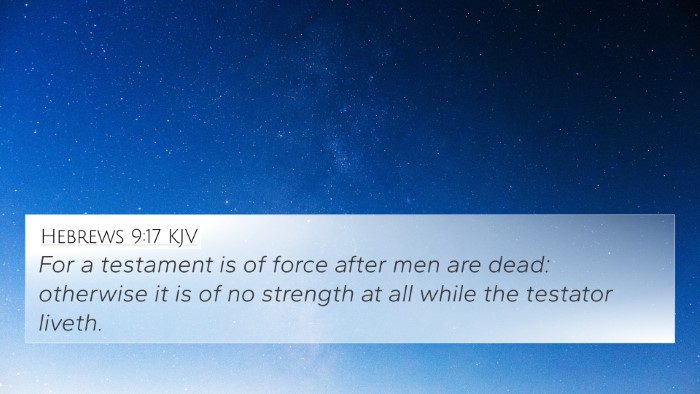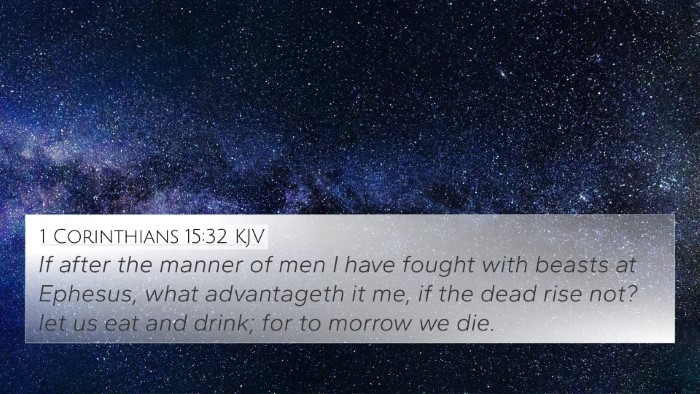Understanding Galatians 3:15
Galatians 3:15: "Brethren, I speak after the manner of men; Though it be but a man's covenant, yet if it be confirmed, no man disannulleth, or addeth thereto."
Key Themes and Concepts
This verse from Galatians highlights the immutability of a covenant. It emphasizes that once a covenant is confirmed, it cannot be altered or broken by human intervention. Paul uses the analogy of human agreements to draw a parallel to God's covenant with humanity, which is steadfast and secure.
- Covenants: The significance of covenants in biblical theology.
- Immutability: The unchangeable nature of God's promises.
- Faithfulness: God's unwavering commitment to His people.
Commentary Insights
Matthew Henry: Henry elaborates that Paul is asserting the strength of God's covenant over human laws and agreements. A human contract once ratified cannot be changed; thus, God's promises, confirmed in Christ, hold an even greater authority.
Albert Barnes: Barnes notes that Paul uses this argument to refute the Judaizers' claims that the law was superior to God's promise. He stresses that God's covenant, like a man's contract, is binding and cannot be voided by any subsequent actions or laws.
Adam Clarke: Clarke emphasizes the relevance of the term "covenant" in this context, indicating that Paul's choice reflects a legal understanding, where once an agreement is made and confirmed, it remains intact. This serves to reinforce the permanence of salvation through faith.
Bible Cross-References
Galatians 3:15 is interconnected with various other scripture passages that explore the themes of promises, covenants, and the law. Below are noteworthy references:
- Romans 4:13-14: Discusses the promise to Abraham being through faith rather than the law.
- Hebrews 6:13-18: Highlights the unwavering assurance of God's promises.
- Ephesians 2:8-9: Explains salvation through grace, independent of works.
- Galatians 3:17: Contextualizes how the law came after the covenant and cannot nullify it.
- Genesis 17:7: God's covenant with Abraham, demonstrating the beginnings of divine promises.
- 2 Corinthians 1:20: Affirms that all God's promises find fulfillment in Christ.
- Hebrews 8:6: Compares the new covenant established through Christ with the old one.
Thematic Connections
The verse embodies a significant theology regarding the relationship between law and grace. The connection between Old and New Testament themes can be observed, highlighting the continuity of God's redemptive plan.
- Law vs. Grace: Exploring how faith transcends the requirements of the law.
- Patriarchs' Faith: The unchanging nature of God's promises to Abraham and their relevance today.
- Security in Covenant: Understanding how believers find safety in God's guarantees.
Conclusion
Galatians 3:15 serves as a powerful reminder of the strength and security of God's promises. By contextualizing this scripture with insights from public domain commentaries and thematic connections drawn across scripture, believers can gain a deeper appreciation for the unbreakable covenant established in Christ. The inter-Biblical dialogue enriches our understanding and fosters a greater insight into the nature of faith, law, and divine promise.






